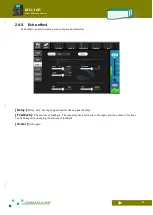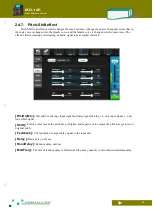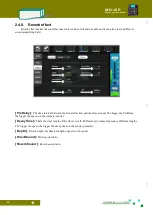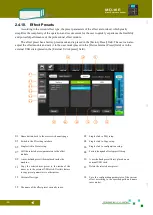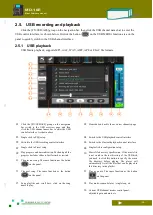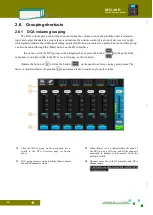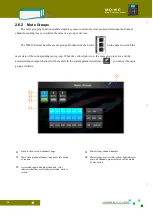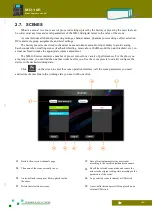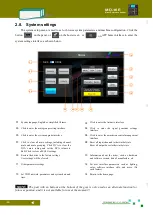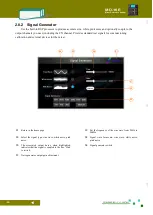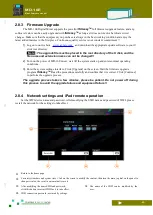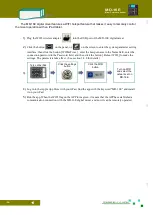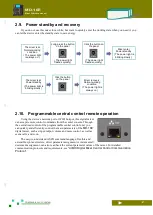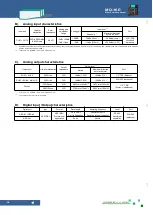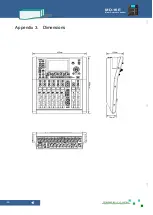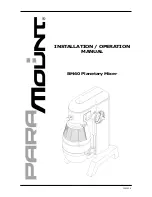
- 43 -
UG-MD16E-EN (V1.3-190708)
MD-16E
Mixer Reference manual
2.8.1 Automix
( this feature is not available yet )
What is automatic mixing? When a person speaks, the system quickly assigns gain to the MIC, while
other silent MICs are automatically pulled down. When the speaker stops talking, the volume of this MIC is
pulled down. The next person speaks, the system quickly assigns gain to the MIC, while the other silent MICs
are pulled down. The result sounds like a MIC is quickly passed between several speakers.
When multiple people speak at the same time, the gain of the MIC will be shared and all MIC sounds
will be used normally, but the background noise will not increase due to the increased number of MICs, or
acoustic feedback will occur. The system provides the [Minimum Gain] option to ensure that the MICs in the
call have the proper volume gain for normal calls, but the MICs with high privileges will have a relatively high
volume.
01
Return to the home page.
02
Set the minimum gain to participate in the automix channel to ensure that the lower priority channel also has the right
amount of volume.
03
Set the gain of the Automix. Avoid multi-microphone gain too low when talking at the same time, and also coordinate the
volume ratio of the automatic mixing channel and the channel that does not participate in the automatic mixing.
05
Select the output bus for the automix feature.
04
Auto mix on/off
07
Input channel label.
06
The bus name of the current automix.
09
The weight of the channel is assigned. The weight
range is 0~100, and 100 is the maximum weight.
The system counts the weights of all channels
participating in the auto mix and assigns the actual
channel gain based on the weight.
08
The current actual gain of the channel, the
channel participating in the automatic mixing,
whose gain will be automatically assigned by the
system through intelligent algorithms.
11
Input channel auto mix switch, [Auto] indicates that
the current input channel participates in automix.
10
Channel weight value. The greater weight, the
higher gain assigned and the greater volume of
the channel.
12 Release time:
When the microphone of a channel does not speak for more than this time, the system will determine that
the microphone of this channel stops talking and its corresponding route volume will be pulled down to -60dB.
13 Start time:
When the microphone of a channel continues to speak for more than this time, the system will determine that
the microphone of this channel starts to talk, and its corresponding routing volume will be based on the gain sharing
principle, and the microphone volume gain will be allocated according to the weight ratio of all the calls.
04
13
01
05
06
03 02
08
09
10
11
12
07
Summary of Contents for MD-16E
Page 2: ...UG MD16E EN V1 3 190708 MD 16E Mixer Reference manual ...
Page 58: ... 48 UG MD16E EN V1 3 190708 MD 16E Mixer Reference manual ...
Page 61: ... 51 UG MD16E EN V1 3 190708 MD 16E Mixer Reference manual Appendix 2 The Mixer Block Diagram ...
Page 63: ... 53 UG MD16E EN V1 3 190708 MD 16E Mixer Reference manual ...

